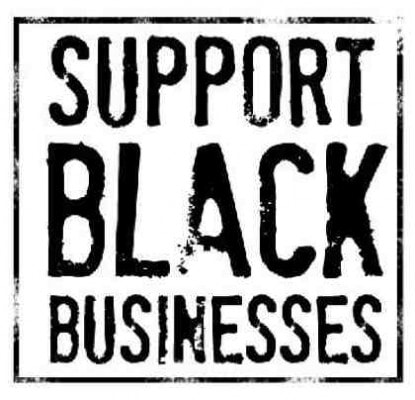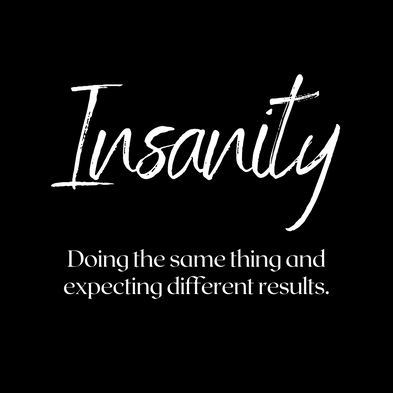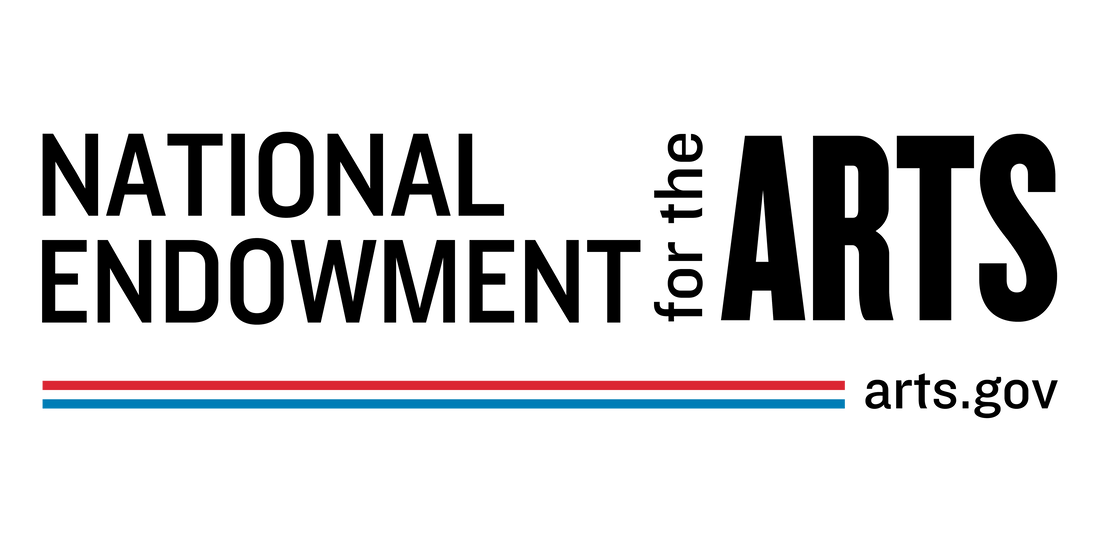|
Hello BIBA fans! This is part three of a series of posts supporting Black businesses. From the 2017 Boston Globe Spotlight Series on race, the reality that “the median net worth for non-immigrant Black households in the Greater Boston region is $8” shocked all of its readers. Are you in Boston? A frequent traveler to or visitor of Boston? Wanting to check out some of Boston’s cultural offerings? Then check out some of the fantastic organizations doing incredible work in the Boston area, and support them with a donation, a share, social media engagement, attendance at one of their events, and in any other way you can.
Theater Company One Theater: this company has been active for over 20 years, creating provocative, social justice oriented performances, and collaborating with civically engaged artists. Their productions have temporarily stopped because of coronavirus, but they are still offering digital content. Learn more on their website, https://companyone.org , and support them financially here: https://companyone.ejoinme.org/MyPages/DonationPage The Front Porch Arts Collective: this young theater company is “committed to advancing racial equity in Boston through theater.” Some of their past projects include reimagining Homer’s “The Odyssey” and Dumas’s “The Three Musketeers” with Black diasporic stories, and “Breath and Imagination” – a musical journey about the legendary tenor Roland Hayes. Learn more on their website, https://www.frontporcharts.org, and support them financially here: https://web.ovationtix.com/trs/store/2462/alldonations/26804?_ga=2.216810133.2029968256.1543956047-9667501.1541186785 StageSource: not a company per se, StageSource is a networking platform that can be used to connect anyone involved in theater. Founded in 1985, its humble beginnings have developed into the major online resource that it is today, reaching over 50,000 patrons daily, and connecting artists in all of New England, New York, and beyond. Learn more about their services on their website, https://www.stagesource.org, and support them financially here: https://www.stagesource.org/donations/donate.asp?id=11697 The Theater Offensive: their strong mission is “to present liberating art by, for, and about queer and trans people of color that transcends artistic boundaries, celebrates cultural abundance, and dismantles oppression.” Their history, since their founding in 1989, includes working with celebrities (such as Alec Mapa and Billy Porter), and bringing queer stories into neighborhoods that are not known to be queer friendly. Learn more about their work on their website, https://thetheateroffensive.org, and support them financially here: https://thetheateroffensive.networkforgood.com … and one more Dance company (for last week’s blog) … Roxbury Center for the Performing Arts: founded by Andrea Herbert Major, she began the “Andrea’s School of Dance” in 1967. As the school grew, she changed the name to “Roxbury Center for the Performing Arts” in 1972, and has not stopped since! This dance organization serves children, youth, adults, and seniors, with programs for beginners as young as 3 years old, as well as “senior tap” programs, and more. Learn more about this fascinating company on their website, https://www.rcpaboston.org , and support them financially here: https://www.paypal.com/donate/?token=zsMy-b_X1YTfowQmUJ9W-A_N6uk4RVd55o67rCSoxGHHSTpJ4wOzq81FHenHmCTu4mUqpW&country.x=US&locale.x=
0 Comments
Hello BIBA fans! This is part two of a series of posts supporting Black businesses. As stated in the last post, numerous factors have contributed to gross inequality in wealth distribution to BIPOC US citizens. From the 2017 Boston Globe Spotlight Series on race, the reality that “the median net worth for non-immigrant Black households in the Greater Boston region is $8” shocked all of its readers. Are you in Boston? A frequent traveler to or visitor of Boston? Wanting to check out some of Boston’s cultural offerings? Then check out some of the fantastic organizations doing incredible work in the Boston area, and support them with a donation, a share, social media engagement, attendance at one of their events, and in any other way you can. This week's post focuses on DANCE!
Dance Abilities Dance: According to their website, this company disrupts antiquated ableist beliefs and disseminates the value of inclusion through dance. Since their first show in February 2017, Abilities Dance Boston has boldly provided a platform for dancers with physical limitations to perform, thus challenging expectations of dancers, especially in the Boston area. Check out their incredible work and donate here: https://www.abilitiesdanceboston.org/donate ; social media: https://www.facebook.com/abilitiesdanceboston and https://www.instagram.com/abilitiesdanceboston/ Benkadi Drum & Dance: formed in 2008, this dance company specializing in African dance and musical forms was established and is lead by Sory Diabate, from Bamako, Mali. They have given performances throughout Boston and Massachusetts, including programs at various primary and secondary schools, Boston University, and MIT’s Kresge Auditorium. Learn more about them here: http://www.benkadidance.com and follow them on facebook here: http://www.benkadidance.com and Instagram here: https://www.instagram.com/benkadidrumanddance/ Danza Orgánica: founded by afroindigenous borikua and award-winning choreographer Mar Parrilla, DO ( http://www.danzaorganica.org/ ) is FIERCELY dedicated to anti-racism, decolonization, and uplifting voices of queer and BIPOC artists. Their various projects include the “we create” festival and “dance for social justice”, among others. Donate to this powerful organization here: http://www.danzaorganica.org/DONATE.php ; and follow them on social media here: Facebook - https://www.facebook.com/danzaorganicadancetheater and Instagram - https://www.instagram.com/danzaorganica/ Midday Movement Series: this dance organization advances two main goals – 1) to offer affordable ($5 - $12!!) classes to advanced dancers, promoting class-taking culture and emphasizing a consistent practice, and 2) to provide a space for dance teachers to craft their movement style and hone their skills. To learn more about them, visit their website at http://www.middaymovement.org, and follow them on social media: facebook - https://www.facebook.com/MiddayMovementSeries/ and Instagram - https://www.instagram.com/MiddayMovementSeries/ ; and donate here: http://studioat550.org/midday-movement/ Mystique Illusions Dance Theatre: founded in 2016 by dancer, choreographer, and visual artist Ronnie Terrell, this organization is focused on teaching a unique style of dance called “Mystique-ology”. It is a patented dance methodology with no geographic boundaries, rooted in science and understanding of movement, using culture, energy, and evolution as its foundation. Learn more here - https://www.mystiqueillusionsdancetheatre.org ; and follow on social media: facebook - https://www.facebook.com/MystiqueIllusionsDanceTheatre/ , twitter - https://twitter.com/MI_DanceTheatre , Instagram - https://www.instagram.com/mystique_illusions/ ; and donate here: https://www.mystiqueillusionsdancetheatre.org/endorsements OrigiNation: one of Boston’s most enduring, impactful organizations, OrigiNation ( https://www.originationinc.org ) was founded in 1994 by Shaumba-Yandje Dibinga, and reaches at least 1,650 children and youth every year. They offer quality dance, theater arts, and African history education, as well as teaching the importance of self-respect, health, nutrition, education, self-esteem, and the extent of African influences on various contemporary art forms. Follow them on social media: facebook - https://www.facebook.com/originationarts/ , twitter - https://twitter.com/OrigiNationArts, and Instagram - https://www.instagram.com/originationarts/ ; and donate here: https://www.originationinc.org/donate Racines Black Dance Festival: every year, a series of workshops about traditional and contemporary African dance are given in celebration of the Black dance culture that has developed since the time of slavery. While no concrete information has been given about this year’s festival, you can follow them on Facebook to keep updated about any announcements: https://www.facebook.com/RacinesFestival/. Also check out their website: https://www.racinesfestival.org ; and donate here: https://www.racinesfestival.org/donate Tony Williams Dance Center: this deeply established organization prides itself on its diverse identity, which yields a fuller cultural experience in all of its offerings. Not only does TWDC offer instruction in multiple styles for children and adults, it also produces the Urban Nutcracker annually, and is the parent organization of the City Ballet of Boston! Learn more about them from their website ( http://tonywilliamsdancecenter.com/ ) and social media ( Facebook: https://www.facebook.com/urbannutcracker ; Twitter: https://twitter.com/twdancecenter ), and donate here: https://bostondancealliance.z2systems.com/np/clients/bostondancealliance/donation.jsp?campaign=41& VLA DANCE: this relatively new dance company strives to empower voices and communities of color through rigorous contemporary dance research and performance. Having presented projects at the Abigail Ogilvy Gallery, Fountain Street Gallery, and #HellaBlack by the BCA, VLA DANCE is now in residence at Roxbury’s Hibernian Hall. Check out more of their work and mission on their website ( https://www.vladance.com/ ), social media ( Facebook - https://www.facebook.com/dancevla ; and Instagram - https://www.instagram.com/dancevla/ ), and donate here: https://bostondancealliance.z2systems.com/np/clients/bostondancealliance/donation.jsp?campaign=98& I am sure that this list is NOT COMPLETE! So please feel free to add BIPOC Dance company/group recommendations in the comments! Additionally, there are plenty of INDIVIDUALS who are incredible dancers and multi-faceted artists in the Boston area, such as Ramiro Purpose, Jimena Bermejo, and Destiny Polk/Radical Black Girl (who is also an incredible poet and activist). by Anthony R. Green Today is the birthday of the late Coleridge-Taylor Perkinson, an incredibly gifted composer whose music stretched across genres, and whose international career also included performing as a pianist and conducting. His music, along with the music of numerous other talented Black composers, is championed by Castle of our Skins in our effort to celebrate Black artistry through music. This celebration, though, would not be complete without supporting Black efforts in other sectors, such as skin care, culinary arts, visual arts, production, management, etc ... In the past, Castle of our Skins has had BIBA Blog posts and events that shared the work of other Black creatives and businesses. With the recent attention towards supporting the various BIPOC (Black, indigenous, people-of-color) communities in the US, the next BIBA Blog posts will focus on why and how YOU - our wonderful readers - can BUY BLACK!!! photo source: connect the dots PR - Vanessa's Blog
During the 1960s, at the height of the Civil Rights Movement, there were many calls for people, especially Black people, to support each other financially as well as idealistically. A well-known picture elucidates this idea rather succinctly: it is of a man holding a protest sign that reads "Do not buy where you will not be hired." While such overt racism may have dwindled since then, a quick look at "diversity" within organizations and stores can be a quick indicator of the covert racism that may be at play in hiring tactics across the country and the world. Furthermore, the covert racism is directly related to the systemic racism that is responsible for today's gross social, educational, health-related, judicial, and economic inequities. For all of you Instagram users, check out THIS infographic that quickly and creatively articulates systemic racism's effect on the Black community. When it comes to economics, "white families hold 90% of national wealth, while Black families hold 2.6% of it" (despite making up 20% of the population). Furthermore, "for every $100 earned by white families, Black families earn $57.30." And lastly, "since the 2008 recession, the wealth gap has increased." (Sources) With that stated, the decision to start redistributing wealth towards Black and BIPOC businesses is a no-brainer, and there are many websites that can help you get started. A simple search for "buy Black" yields NUMEROUS links to articles, blogs, online stores, and websites with links to help anyone BUY BLACK! WeBuyBlack.com in particular has been increasing its number of vendors, products, and sales recently. Additionally, for our Boston (local) readers, Boston.com has been featuring articles about Black-owned businesses, particularly restaurants, that could use some support. HERE is an article, and HERE is another one. NEXT WEEK'S BLOG WILL HIGHLIGHT SOME OF COOS's FAVORITE BOSTON ARTISTS AND CREATIVES! Be sure to check back here next Sunday, and keep up with COOS's digital season that includes the Black Composer Miniature Challenge, the Kid's Korner, and the Poetry Night Cap! ... and thank YOU for your support! by Ashleigh Gordon This has been a challenging week, few months, year, or 400+ years depending on your vantage point. As scores of organizations release solidarity statements, I can’t help but wonder: If as a sector we can fundamentally shift our thinking and approach to creating, sharing, collaborating, managing, and engaging with art during a few months of a young health pandemic, why is it so difficult to do the same during a centuries-long racial one? There was certainly no blueprint, no “How to Do Arts During a Pandemic” textbook. Yet the sector is rising to the challenge and doing so creatively and quickly. Dollars, maintaining relevance, and fighting for one’s survival undoubtedly have something to do with this phenomenon. On the ironic side, there have been, and continue to be centers, institutions, resources, facilitation guides, and countless case studies not only highlighting the inequities under our noses, but providing how-to solutions (read: doing the hard thinking for you) with little tangible results. Devaluing the need to invest dollars in equity work, upholding a narrow definition of what culture is relevant and for whom, and choosing to not fight for the survival of cultures, stories, histories, and voices that continue to be marginalized to the point of near erasure has something to do with this phenomenon. In response to the outpouring of solidarity statements and uptick in Black Lives Matter hashtags, I’m reminded of a statement by Nikki Giovanni, whose Poem for Nina is the inspiration behind our organizational name and whose birthday is also today: “Mistakes are a fact of life: It is the response to the error that counts.” If you’re one of the countless organizations that have acknowledged your mistakes, great. There are and will be more mistakes, so keep looking. If you have not acknowledged your mistakes, dig deeper because they’re there. But beyond a well-penned “We see you Black community” statement, we need to actually do better and do differently. Otherwise, by definition, we are insane to think anything new will actually result. Some thoughts on how to do better and do differently, now and always: 1. Remove colonial language in all aspects of your institution because language matters.
2. Remove a dominant white culture value system because perspective matters.
As we are all well aware of and feeling, this is undoubtedly a challenging situation. The mistakes are known, the errors documented with solutions named and yet to be realized. All that is missing? Your motivation and action.  ~ Ashleigh Gordon Artistic and Executive Director Castle of our Skins |
Details
Writings, musings, photos, links, and videos about Black Artistry of ALL varieties!
Feel free to drop a comment or suggestion for posts! Archives
May 2024
|
Member Login
Black concert series and educational programs in Boston and beyond



 RSS Feed
RSS Feed










